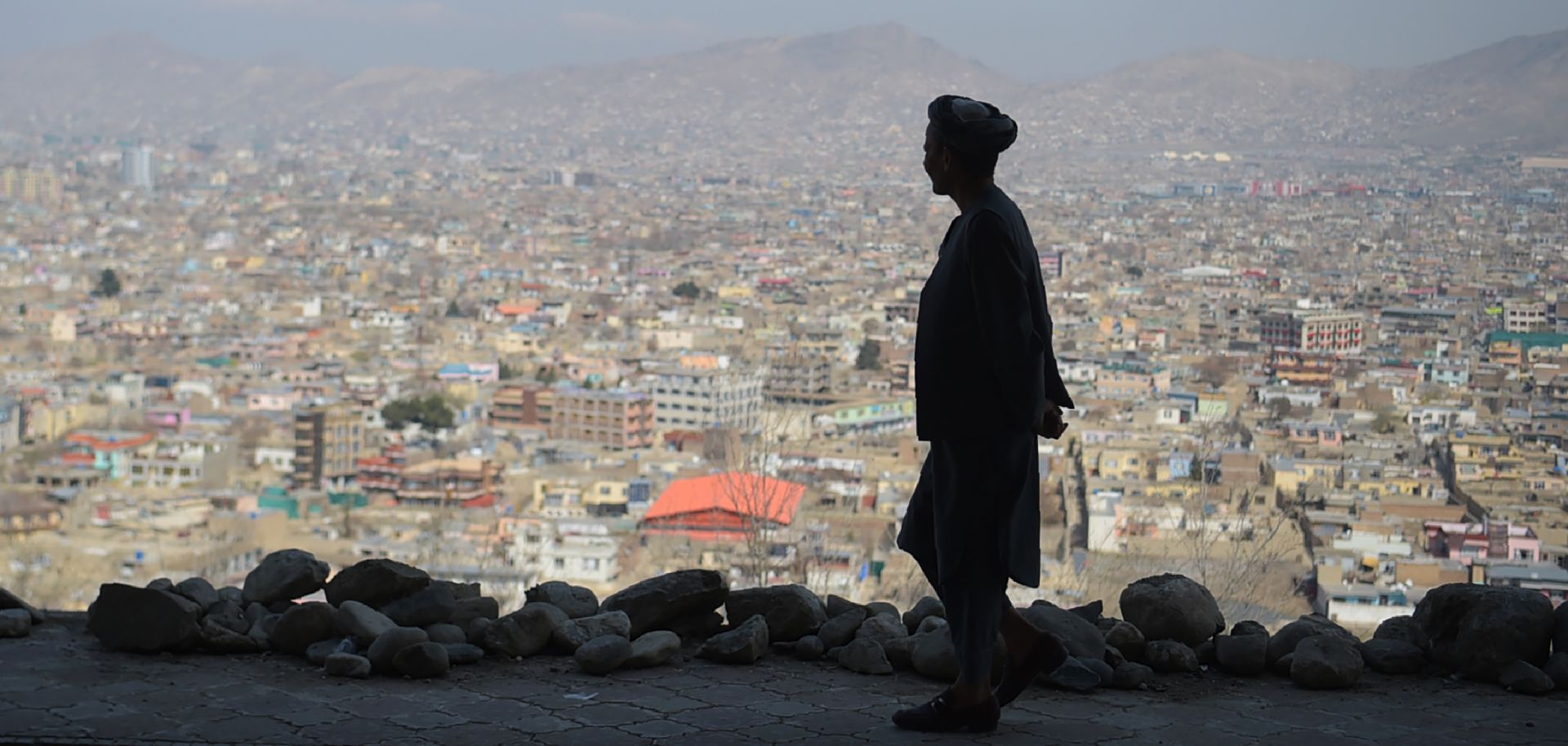ASSESSMENTS
Afghanistan in 2018: No End to the Stalemate
Dec 22, 2018 | 13:00 GMT

An Afghan man walks along a hilltop overlooking Kabul on March 21, 2018. With the current conflict in Afghanistan in its 18th year, the United States has yet to find a way to escape its longest war.
(SHAH MARAI/AFP/Getty Images)
Editor's Note
With the current conflict in Afghanistan approaching its 18th year, the United States has yet to find a way to escape its longest war. The United States and its NATO allies are but one component invested in Afghanistan's future, as the country finds itself once again a focal point for great power competition. Despite the rhetoric of the current U.S. administration and a revised strategic approach relying more heavily on air power, the stalemate on the ground has yet to be broken. The NATO-backed central government in Kabul continues to control the country's urban areas while the Taliban exerts influence over wide swaths of the countryside.
On the diplomatic front, Russia has made more significant gains — seeking to needle its Western opponents — while Pakistan continues to muddy the waters. All the while, China watches and waits. As we take stock of what transpired in 2018, two late developments have the potential to affect the trajectory of the embattled country in 2019: the impact of a proposed 50 percent reduction of U.S. forces in Afghanistan and a new U.S. secretary of defense, replacing James Mattis.
Subscribe Now
SubscribeAlready have an account?
